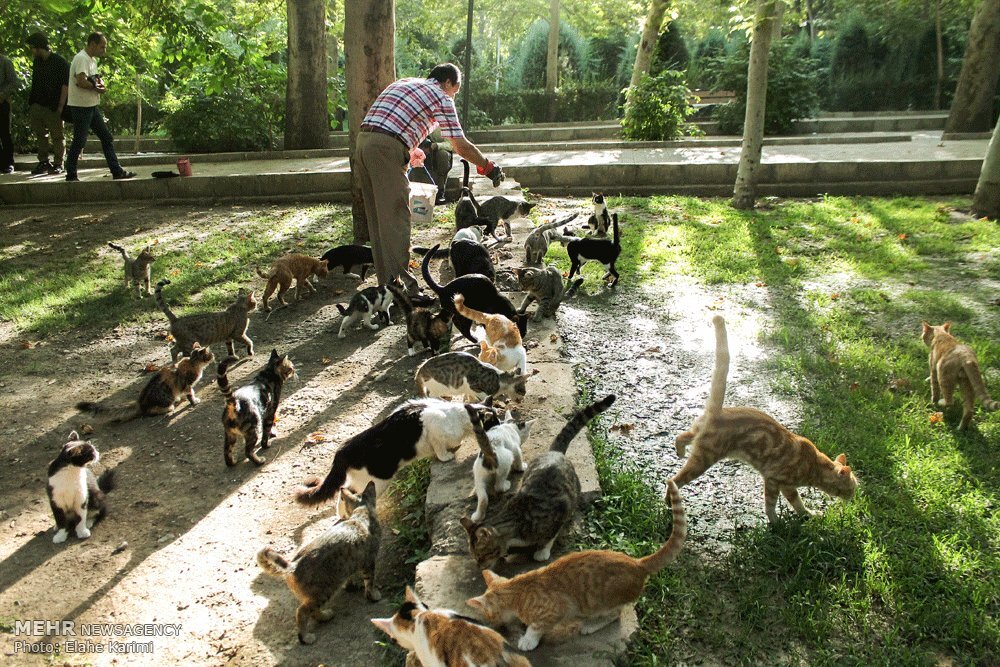Should we hand-feed animals or not?

TEHRAN – Hand-feeding the animals in cold seasons has been controversial as opponents believe that it weakens their immune system and changes their habits, but proponents believe that it does not significantly affect the animals’ routine.
Some believe that feeding animals by hand can change their diet and cause a variety of diseases in them, or that it causes a large number of animals to gather in one place, and if one is sick, the others will be infected. It also affects the migration time of birds.
On the other hand, some people agree with feeding the animals because they believe that the destruction of habitats has reduced food availability and they have difficulty finding food. They claim that no disease or migration change due to hand-feeding has been reported so far.
Hand feeding is a scientific subject and cannot be criticized personally. Global science says that wildlife animals have their own natural cycles unless something like a drought occurs and the animals are pressured to prepare food, Iman Memarian, a veterinarian, told IRNA on Tuesday.
At that time, it should be studied how to feed them and how much to disperse, which should be similar to the natural dispersion of food in nature, rather than, for example, throwing a large volume of alfalfa in one place and forcing all animals to feed on it, he added.
In fact, there are two issues with animal feeding in winter, one for wildlife in natural habitats and the other for stray animals, both of which should not be done unless comprehensive research is done on the habitat to realize that if drought, human enforcement, habitat destruction, and overhunting have limited the food and water resources of the area, he explained.
In these circumstances, comprehensive research should be done on what kind of food, how much, in what places, with what distribution should be distributed, and only in special cases, and it is not at all to recommend to ordinary people, he emphasized.
Referring to the stray animals, he said that the situation is quite different, and should not be fed due to population control, the most important principle for managing the population of stray animals is waste management, which is not done properly in the country.
The migratory birds are sometimes fed with large amounts of forage, including wheat, corn, and dry bread, which are very high in carbohydrates, and in addition to not being healthy, can carry toxins such as aflatoxins, Memarian lamented.
“Unfortunately, what we think is a positive culture, such as giving food or leftovers to animals without knowing what their food is, not only does not help nature and animals, but it can also severely harm them,” he emphasized.
Take habitat condition into account
Mohammad-Ali Yektanik, a wildlife expert, said that human activities caused natural habitats to change or sometimes deplete completely; so that humans should now protect the animals not to be endangered, which is called “wildlife management”.
Given conservation function, the restoration of endangered species has its own rules and regulations which might decades to be done, he noted.
A very important point is that when we feed birds, we are putting them in danger by reducing their fear of humans, which can slow down the flight height of birds and threaten them, he emphasized.
According to the Department of Environment, about 90 percent of the wetland habitats have been completely lost, meaning they turned to a source of sand and dust. The remaining 10 percent also have been damaged by 20 to 80 percent, while migratory birds are only attracted to places that are of good water resources, which makes it very difficult for them to winter in the wetlands of the country.
While there is not much natural habitat left for the birds to feed on, we have to help them in accordance with the principles. In the meantime, some of the issues with hand-feeding are making the birds fat, weakening their immune system, then their migration path changes, and their habitat as well, he explained.
Therefore, feeding should be done with full vigilance so as not to harm the wildlife, he concluded.
FB/MG
Leave a Comment